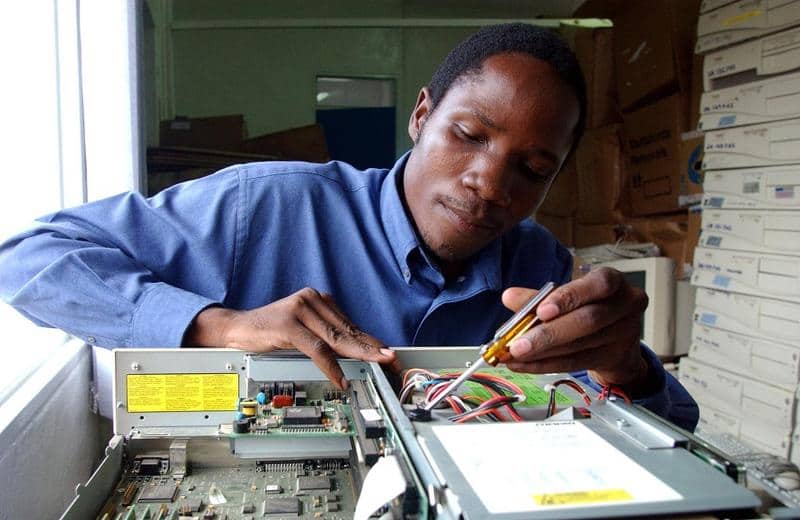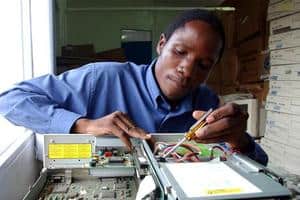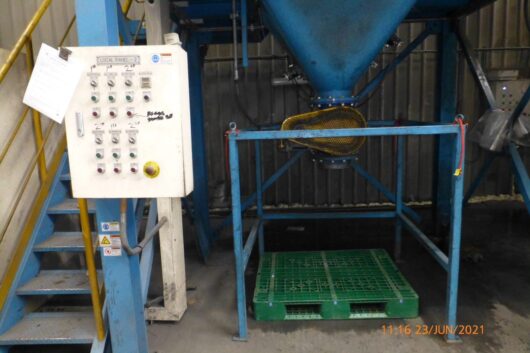Recycling ICT equipment such as computers is a “wasted opportunity” due to the energy and environmental savings that can be made by prolonging their operational life instead, according to a report published by reuse charity Computer Aid International yesterday (August 10).
According to the report, while recycling is often the favoured waste management option for electronic waste, it is not always the best one – particularly in the case of unwanted PCs.
“Compared to some other waste electronics, for PCs, the environmental ‘payback' of recycling is relatively small,” the report claims. “This is due to the concentration of energy intensity in PC production and typically short life spans of their actual use, fuelled by rapid product innovation and high levels of replacement.
In the report, Computer Aid compared this to a refrigerator, where it said 88% of the energy use comes from running the device, which meant designing a more energy efficient machine makes the most environmental sense, whereas for a computer only 20% of energy use comes from running, and the rest is from manufacture.
“This means that any activity that extends the life span of a PC to avoid superfluous manufacture is a key strategy to mitigate its environmental impacts,” the report added.
It also claimed that increasing the life-span of ICT equipment, such as computers and mobile phones, was beneficial when the depletion of resources involved in manufacturing new equipment was considered.
While under the waste hierarchy, reuse is meant to be prioritised ahead of recycling, and in the EU Waste Electrical Electronic Equipment (WEEE) Directive there is language that prioritises reuse, Computer Aid claimed that the lack of specific reuse targets means that recycling often becomes the “practical reality”.
The issue of reuse for electronic equipment has also proved controversial due to high-profile incidences of where unrepairable WEEE – which, as waste should not be exported to the developing world – has allegedly been marked as fit for reuse and exported overseas (see letsrecycle.com story).
The sector has also seen TV exposes of e-waste scavengers making a living in countries like Nigeria by sorting through electronic equipment imported from Europe and the USA searching for precious metals without suitable safety equipment.
Benefits
Computer Aid, however, used its report to highlight further benefits of reuse, including the social and economic gains it said it could bring by bridging the “digital divide”.
“The lower purchase cost of refurbished equipment can make it available to those that could not afford it new,” it said.
The report said that, to realise the “many benefits” of reuse, there needed to be action taken by producers to design reuse into their products, and for consumers to postpone replacing equipment until it had reached the “genuine” end of its productive life.
And, it called for the introduction of targets and standards for reuse, as well as more public education about the waste hierarchy and the mandatory segregation of reusable equipment at CA sites.
A reuse standard was among the work being undertaken by the government's WEEE Advisory Body (WAB), and is now set to be taken forward by the department for business, innovation and skills, following its announcement last month that the WAB is being abolished (see letsrecycle.com story).
The charity's environmental advocacy officer, Haley Bowcock, said: “Now is a more exciting time than ever to be talking about reuse, as the EU's Directive on Waste Electrical and Electronic Equipment (WEEE) is edging closer towards a specific reuse target. If approved, this would go a long way to increasing levels of reuse across the community.
“We hope that this report convinces policy-makers in the EU and beyond of the need to maximise opportunities for reuse-such as through the introduction of legislated targets in their e-waste management systems,” she added.













Subscribe for free